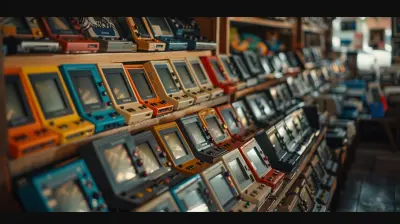How Tabletop Games Can Develop Critical Thinking Skills
6 August 2025
Who doesn’t love a good game night? Whether it’s rolling dice, moving pieces, or cleverly scheming your way to victory, tabletop games bring people together for fun and laughter. But did you know that they’re also sneaking in a workout for your brain? That’s right—tabletop games, those old-school gems, can actually help sharpen your critical thinking skills.
So, while you’re plotting your next move in Catan or trying to outwit everyone in Betrayal at House on the Hill, you’re not just having fun—you’re building mental muscles. Ready to dive deeper into how these games turn your brain into a strategy powerhouse? Let’s break it down.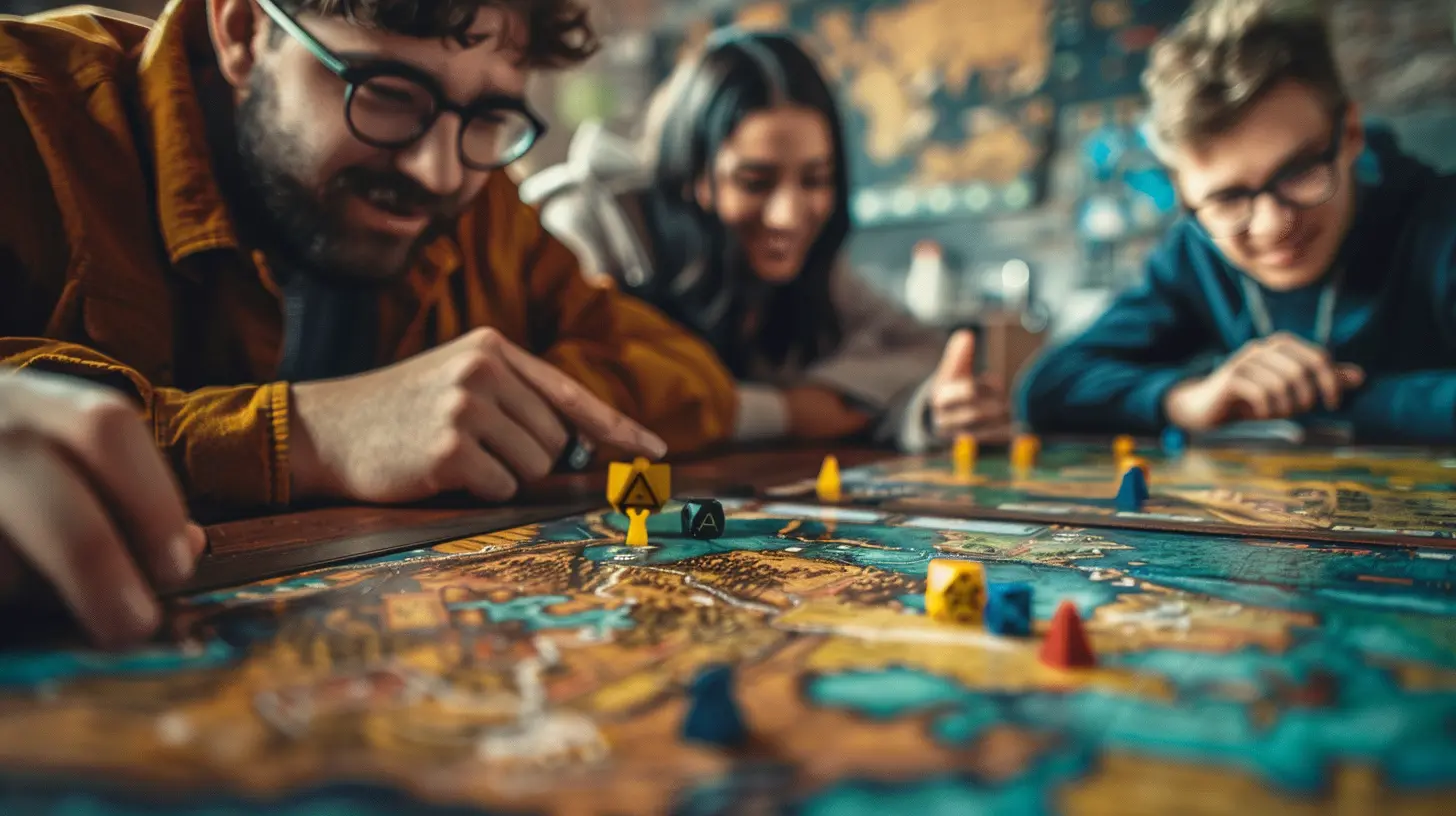
What Are Critical Thinking Skills, Anyway?
Before we dive into dice and game boards, let’s make sure we’re on the same page. Critical thinking is all about the ability to analyze information objectively, evaluate options, and make well-thought-out decisions. It’s the skill you use when weighing the pros and cons of buying a new laptop or deciding which Netflix show to binge next.Now, here’s the kicker: critical thinking isn’t something you’re just born with. It’s like a muscle—you have to exercise it to make it stronger. And guess what? Tabletop games are like the mental equivalent of hitting the gym.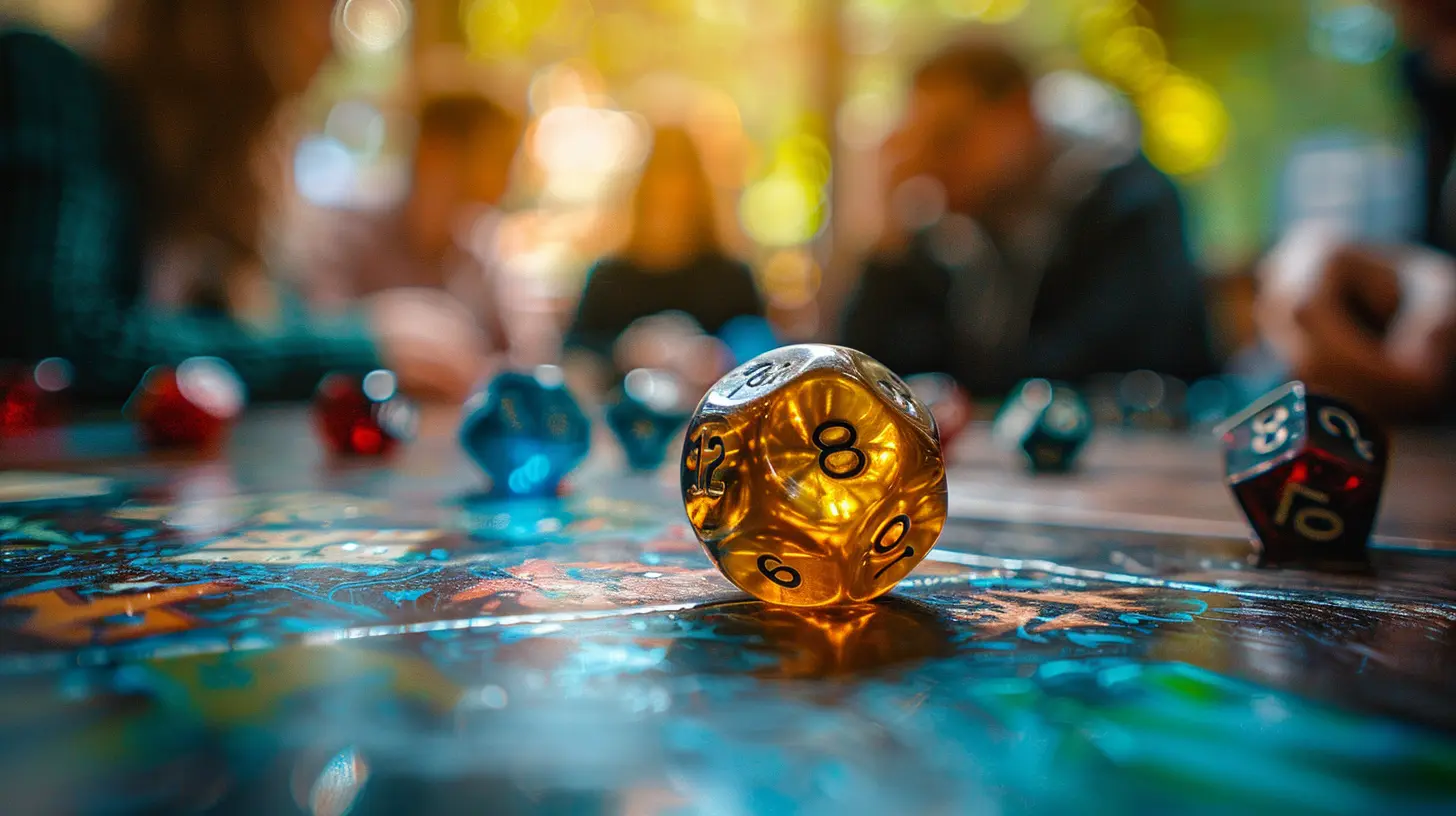
How Tabletop Games Stimulate Critical Thinking
1. Strategizing for Success
Imagine you’re playing Catan. You’re eyeing a prime location for building your settlement, but it’s not just about grabbing any spot. You have to think about resources, future trades, and how to block your opponents. Here’s where the strategy comes in: you’re forced to analyze your options, predict outcomes, and make calculated decisions.The same concept applies to games like Risk or Chess. If you act impulsively, you’re toast. But if you think a few moves ahead, you’re positioning yourself for success. Tabletop games demand strategy, and practicing this skill translates directly to real-life problem-solving.
2. Learning to Adapt on the Fly
Ever had your entire plan ruined because someone played a sneaky card or rolled that one number you were hoping they wouldn’t? Yep, we’ve all been there. Tabletop games teach you to pivot and adapt when your initial plan goes out the window.Games like Pandemic or Ticket to Ride are prime examples. You have to adjust strategies in real-time, often working with limited resources. This forces you to think critically under pressure. Sound familiar? That’s because life loves throwing curveballs too.
3. Weighing Risk vs. Reward
Tabletop games are a masterclass in risk assessment. Do you take the risky shortcut that could win you the game or play it safe with a steady strategy? Figuring out the balance between risk and reward is a recurring theme in games like Dead of Winter or Dungeons & Dragons.This is a skill that goes beyond the game table. Whether you’re deciding to take on a challenging task at work or invest your savings, knowing how to evaluate risk and reward is a game-changer.
4. Boosting Logical Thinking
So many tabletop games are puzzles at their core. Whether it’s cracking the code in Codenames or deciphering clues in Sherlock Holmes: Consulting Detective, these games get you thinking logically. You’re piecing together clues, analyzing patterns, and connecting dots to solve problems.Logical thinking is a cornerstone of critical thinking, and tabletop games are like brain teasers that make you better at it while also being ridiculously entertaining.
5. Encouraging Empathy and Perspective
Not all critical thinking is about cold, hard logic. Games like Werewolf or Secret Hitler throw social dynamics into the mix. What’s your best move when you suspect your friend is bluffing? Can you convince others that you’re on their team even when you’re not?These games require you to pick up on social cues, understand motivations, and think from someone else’s perspective. Turns out, empathy is a big part of critical thinking, too. Understanding where others are coming from can help you make better decisions in both games and life.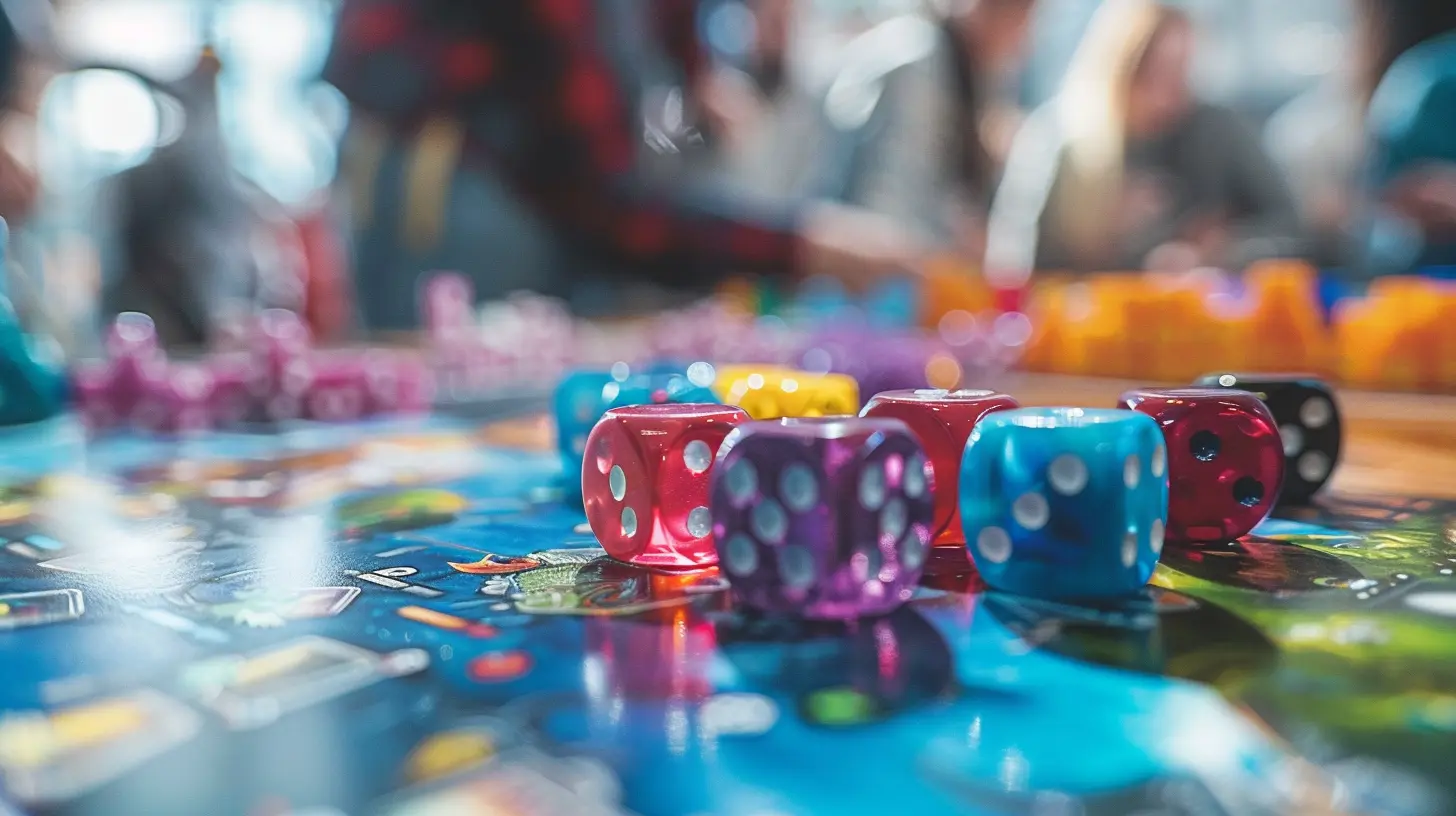
Why Tabletop Games Work Better Than Apps or Video Games
Sure, there are plenty of mobile and video games that make you think. But there’s something unique about the tactile, face-to-face nature of tabletop games. When you’re physically moving pieces and interacting with people at the same table, it engages your brain in a different way.Plus, the social element can’t be overstated. You’re not just working through game mechanics—you’re navigating human dynamics. Someone just stole your property card in Monopoly? Now you’ve got to critically assess your relationship with them (kidding… kind of).
Tabletop games bring a layer of depth and engagement that a screen just can’t replicate.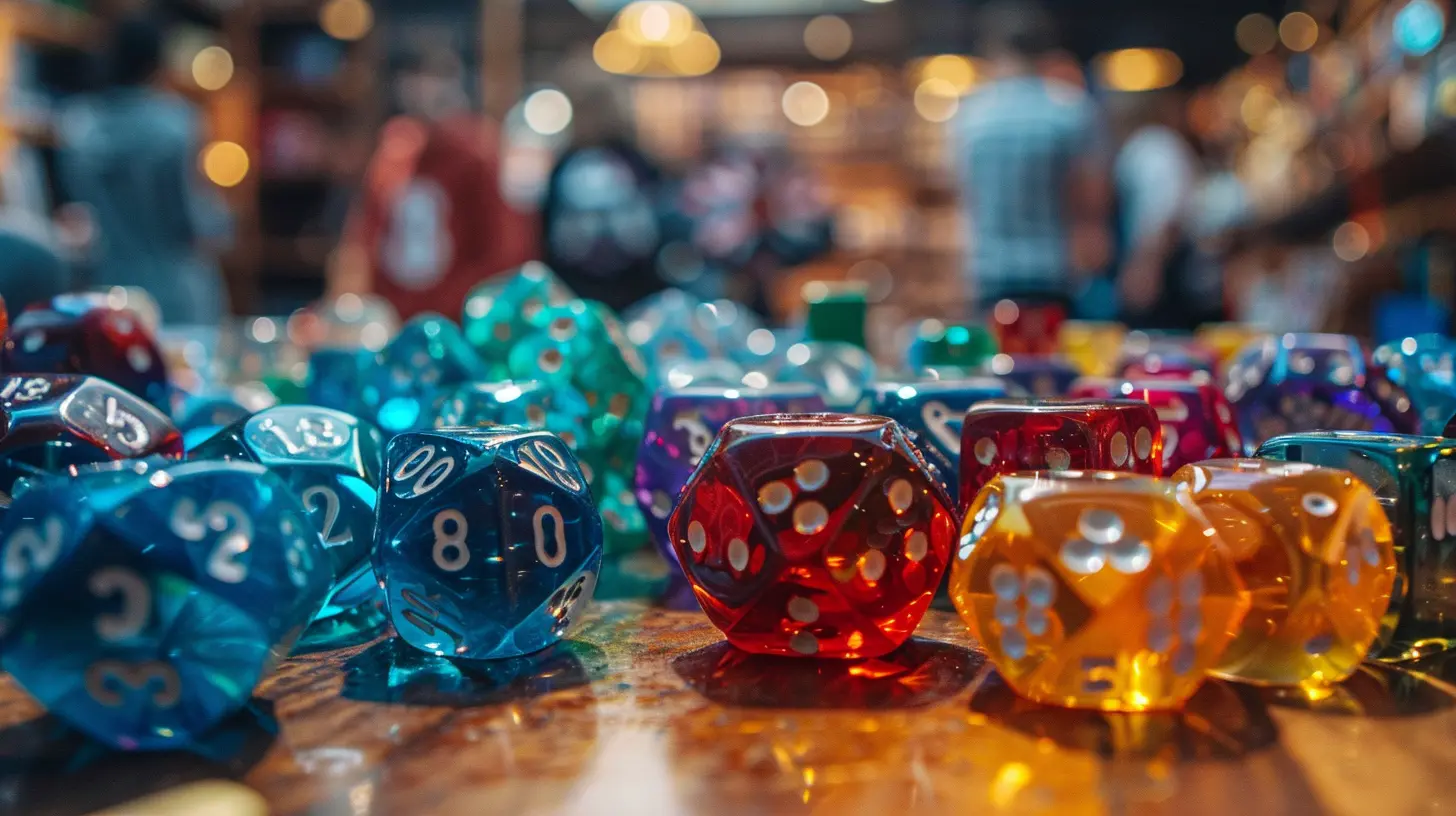
Games to Add to Your Critical Thinking Workout
If you’re ready to start flexing those critical thinking muscles, here are some games to add to your rotation:- Catan: Perfect for resource management and strategic planning.
- Ticket to Ride: Great for route optimization and forward-thinking.
- Pandemic: A cooperative game that pushes you to solve problems as a team.
- Carcassonne: Tile-laying fun that requires spatial awareness.
- Sherlock Holmes: Consulting Detective: Put your deductive reasoning to the test.
- 7 Wonders: Quick, engaging, and makes you think three steps ahead.
These games aren’t just a blast to play—they’re brain food at its finest.
Some Real-Life Benefits of Critical Thinking Skills
Still wondering what all this mental exercise gets you? Here are some ways critical thinking spills over into your everyday life:- Better Decision-Making: Whether it’s budgeting, career planning, or just choosing dinner, you’ll make smarter choices.
- Problem-Solving Superpowers: Life throws challenges at you daily; critical thinking helps you tackle them head-on.
- Improved Communication: Understanding others’ perspectives makes you a better listener and speaker.
- Confidence Boost: Knowing you’ve considered all angles before making a decision gives you peace of mind.
Playing games and gaining these benefits? That’s a win-win if you ask me!
Wrapping It Up
So the next time someone gives you a side-eye for busting out a board game, know that you’re doing more than playing. You’re sharpening skills that can help you in every aspect of your life. From strategizing your next power move to adapting to unexpected changes, tabletop games teach critical thinking in ways that are as effective as they are fun.And let’s be real—learning is way better when it involves game pieces, laughter, and maybe a little friendly trash talk. So go ahead, roll those dice, and start leveling up both in the game and in life.
all images in this post were generated using AI tools
Category:
Tabletop GamesAuthor:

Lana Johnson
Discussion
rate this article
2 comments
Nyx Wolfe
This article effectively highlights how tabletop games foster critical thinking skills through strategy, collaboration, and problem-solving. It's a refreshing perspective on the educational benefits of gaming beyond mere entertainment.
February 2, 2026 at 4:22 AM
Arlo McAdams
Tabletop games are a fantastic way to boost critical thinking! They encourage strategic planning, problem-solving, and collaboration, all while providing a fun, social environment. Plus, you never know what creative solutions players might come up with!
August 26, 2025 at 4:09 PM

Lana Johnson
Absolutely! Tabletop games are a powerful tool for enhancing critical thinking through strategy, collaboration, and creativity. The dynamic interactions truly foster innovative problem-solving skills.

